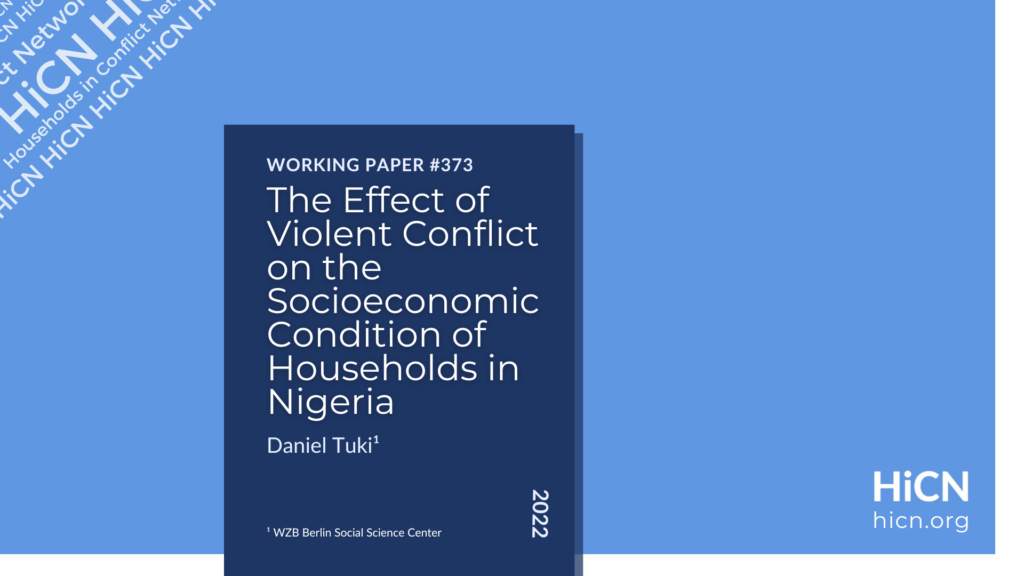
The incidence and intensity of violent conflict in Nigeria have been rising steadily since 2016. However, the states across the country are not equally affected. Moreover, the nature of the conflicts and the conditions under which they occur vary across Nigeria’s states. Relying on novel survey data that was collected from Kaduna, the second state most affected by violent conflict in Nigeria, this study examines the effect that exposure to violent conflict has on the socioeconomic condition of households. The instrumental variable regressions show that violent conflict worsens the socioeconomic condition of households. A unit increase in the number of violent conflicts within the 30km buffer around the dwellings of the households increases the likelihood of them being unable to meet their food needs by 0.3 percent. This finding is robust to alternative data, buffer sizes, and estimation techniques. Improvements in state capacity was found to reduce the likelihood of households being in a poor socioeconomic condition. This is because economic activity does not thrive in an environment characterized by insecurity.